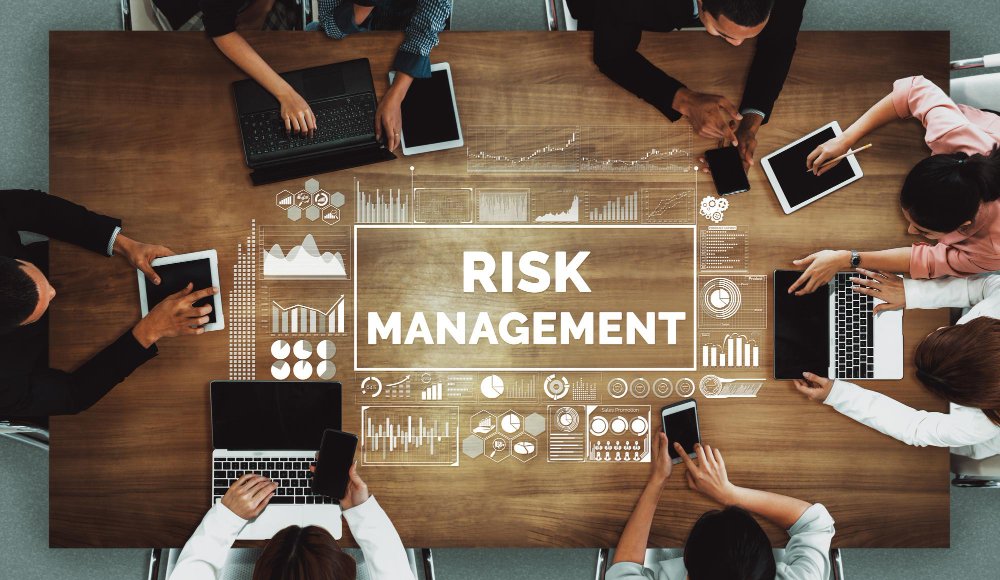Risk Management Unleashed: How Professional Services Shield Your Business
- 1 The Role of Professional Services in Risk Management
- 1.1 1. Expertise and Specialized Knowledge
- 1.2 2. Comprehensive Risk Assessment
- 1.3 3. Customized Risk Mitigation Strategies
- 1.4 4. Regulatory Compliance
- 1.5 5. Crisis Management and Business Continuity Planning
- 1.6 6. Technological Solutions and Cybersecurity
- 1.7 7. Financial Risk Management
- 2 Case Study: Successful Risk Management Implementation
- 3 The Future of Risk Management
- 3.1 1. Advanced Analytics and Artificial Intelligence
- 3.2 2. Integrated Risk Management Platforms
- 3.3 3. Focus on Sustainability and ESG Risks
- 4 Conclusion
In today’s dynamic and unpredictable business environment, risk management has become an essential component of organizational strategy. The uncertainty that businesses face—ranging from financial instability and regulatory changes to technological disruptions and natural disasters—necessitates a proactive approach to identify, assess, and mitigate risks. Professional services in risk management provide businesses with the expertise and tools needed to navigate these challenges effectively. This article delves into the significance of risk management and how professional services play a pivotal role in safeguarding your business.
This is where professional risk management services come into play. These services give businesses the expertise, tools, and strategies to identify, assess, and mitigate risks comprehensively. By leveraging professional services, companies can safeguard their assets and enhance their resilience and competitiveness in the market.
Understanding Risk Management
Risk management is the process of identifying, assessing, and controlling threats to an organization’s capital and earnings. These risks stem from various sources, including financial uncertainties, legal liabilities, strategic management errors, accidents, and natural disasters. A comprehensive risk management strategy involves:
- Risk Identification: Recognizing potential risks that could affect the business.
- Risk Assessment: Evaluating the likelihood and impact of these risks.
- Risk Mitigation: Implementing measures to minimize or eliminate the risks.
- Monitoring and Reviewing: Continuously overseeing risk management efforts and making adjustments as needed.
The Role of Professional Services in Risk Management
Professional services in risk management offer specialized expertise and resources that are often beyond the scope of internal teams. Firms or individuals provide these services with deep knowledge and experience in identifying and mitigating risks. Here’s how professional services can shield your business:
1. Expertise and Specialized Knowledge
Risk management professionals bring a wealth of knowledge and experience in various industries. They understand the specific risks associated with different sectors and can offer tailored solutions. Their expertise allows businesses to foresee potential threats and develop strategies to counteract them effectively.
2. Comprehensive Risk Assessment
Professional services conduct thorough risk assessments, identifying both internal and external risks. They utilize advanced tools and methodologies to analyze the likelihood and impact of each risk. This comprehensive assessment provides a clear picture of the business’s risk landscape, enabling informed decision-making.
3. Customized Risk Mitigation Strategies
Based on the assessment, risk management professionals develop customized strategies to mitigate identified risks. These strategies can include implementing new policies, adopting advanced technologies, improving operational processes, or even restructuring certain aspects of the business. Customized solutions ensure that the specific needs and circumstances of the business are addressed.
4. Regulatory Compliance
Navigating the complex web of regulations and compliance requirements can be daunting. Professional services help businesses stay compliant with industry standards and legal requirements. They keep abreast of changes in regulations and ensure that the business’s practices align with the latest legal frameworks. This reduces the risk of legal penalties and enhances the organization’s reputation.
5. Crisis Management and Business Continuity Planning
In the event of a crisis, professional risk management services provide critical support. They help in developing and implementing business continuity plans that ensure the organization can maintain operations during and after a disruptive event. This proactive approach minimizes downtime and financial losses, ensuring business resilience.
6. Technological Solutions and Cybersecurity
With the increasing reliance on digital technologies, cybersecurity has become a significant concern for businesses. Risk management professionals offer expertise in identifying and mitigating cyber threats. They implement robust cybersecurity measures, conduct regular audits, and provide training to employees on best practices. Protecting sensitive data and maintaining the integrity of IT systems is crucial for safeguarding the business against cyberattacks.
7. Financial Risk Management
Professional services assist in managing financial risks, including market fluctuations, credit risks, and liquidity issues. They provide insights into financial planning, investment strategies, and risk diversification. By optimizing financial risk management, businesses can achieve more excellent stability and long-term growth.
Case Study: Successful Risk Management Implementation
Consider the case of a mid-sized manufacturing company facing significant operational risks due to supply chain disruptions. The company engaged a professional risk management firm to address these challenges. The firm conducted a comprehensive risk assessment and identified key vulnerabilities in the supply chain. They developed a mitigation strategy that included diversifying suppliers, implementing advanced inventory management systems, and establishing contingency plans for potential disruptions.
As a result, the company improved its supply chain resilience, reduced downtime, and maintained steady production levels despite external challenges. This proactive risk management approach not only safeguarded the company’s operations but also enhanced its competitive advantage in the market.
The Future of Risk Management
The landscape of risk management is continuously evolving, driven by technological advancements and changing business environments. Professional services in risk management are also adapting to these changes, offering innovative solutions to address emerging risks. Here are some trends shaping the future of risk management:
1. Advanced Analytics and Artificial Intelligence
The use of advanced analytics and artificial intelligence (AI) is revolutionizing risk management. These technologies enable more accurate risk assessments, predictive modeling, and real-time monitoring of risks. AI-powered tools can identify patterns and trends that humans might overlook, providing deeper insights into potential threats.
2. Integrated Risk Management Platforms
Integrated risk management platforms are becoming increasingly popular. These platforms offer a centralized approach to managing various types of risks, from operational and financial risks to compliance and cybersecurity. By integrating risk management processes, businesses can achieve greater efficiency and consistency in their risk management efforts.
3. Focus on Sustainability and ESG Risks
Environmental, Social, and Governance (ESG) risks are gaining prominence in the risk management agenda. Businesses are recognizing the importance of sustainability and ethical practices in mitigating long-term risks. Professional services are helping organizations incorporate ESG considerations into their risk management strategies, ensuring alignment with global sustainability goals.
Conclusion
Effective risk management is crucial for the survival and success of any business. Professional services in risk management provide the expertise, resources, and innovative solutions needed to navigate the complex risk landscape. By leveraging these services, companies can protect their assets, ensure regulatory compliance, and enhance their resilience against unforeseen challenges. As the business environment continues to evolve, staying ahead of risks through professional risk management will remain a key driver of sustainable growth and success.


















